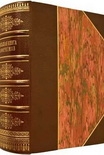What Will Burn James Oswald (booksvooks txt) 📖

- Author: James Oswald
Book online «What Will Burn James Oswald (booksvooks txt) 📖». Author James Oswald
He opened it, stepped inside. There was something about the quietness of the place that calmed him. It reminded him of the ramshackle shed in his own garden. Not as it was now, but as it had been when he’d been a boy. Back when it had been the domain of Bill Bradford the gardener. Many was the time McLean had ended up in there, watching as the old man patiently dibbed seeds into pots of fresh compost, or rolled his horrible-smelling cigarettes. Like that shed, this one was a place of old tin boxes, neatly stacked terracotta pots, hand tools and bundles of bamboo stakes. The workbench under the window had been cleared, but time and lack of use had covered it in dust, spiderwebs and the husks of half-eaten insects. This wasn’t a place often visited.
A series of shelves on the opposite wall held ancient boxes of fertiliser, fish, blood and bone, more tools of the gardener’s trade. No slug pellets, poisons or weedkillers as far as he could see, but there on the bottom shelf was an empty food bowl, and beside it a bag of cat food. A pile of old hessian sacks bore a dent in the shape and size of a cat. When he ran his fingers over the surface, they came away with a few short black hairs stuck to them.
‘Thought you were going inside, sir.’
The voice startled him, and McLean almost banged his head on the upper shelves as he stood up in a hurry. Harrison stared at him from the doorway, her expression one of concern.
‘Anyone know what happened to the cat?’ he asked. Harrison’s face was answer enough.
‘What cat?’
McLean pointed at the bowl, the food, the makeshift bed, but Harrison was already pulling out her phone. She stepped away from the shed, either for a better signal or because the conversation with the incident room was likely to be embarrassing. He took another look around the shed, but saw nothing of interest, nothing that suggested it might be a clue as to why someone would come here in the night, beat an old woman to within an inch of her death, then finish the job with petrol and a match.
‘No mention of a cat in any of the reports, sir,’ Harrison said as he stepped out into the garden a moment later. McLean carefully closed and latched the shed door. He looked out across the abandoned vegetable patch, then up past the trees to the slate-grey sky overhead. Fat raindrops started to fall as if they’d been waiting for his upturned face. He turned away, pulling up the collar on his jacket against a sudden chill.
‘Come on. Let’s go have a look inside.’
A smell of damp pervaded the interior of the house as McLean stepped in through the front door. Instinctively, he reached out and took hold of the nearest steel prop, checking it was still firmly holding up the first floor before ducking under the lintel and into the narrow hall. The room where Cecily Slater had died was at the front of the house, he knew, but that was also where the worst of the collapse had happened. No point going in there, so he turned left and stepped into the kitchen.
In many ways it reminded him of his own kitchen, even if it was considerably smaller and the range cooker appeared to run on wood rather than expensive heating oil like his Aga. Marginally more environmentally friendly, maybe. The cupboards were of a similar vintage, handmade by some long-forgotten carpenter and far removed from the sleek designs he had seen in some of the glossy magazines Emma occasionally left casually open around the place. Twin green lines stained the deep Belfast sink, the marks of years of drips from a pair of ancient brass taps. McLean would have bet good money the pipes feeding them were made of lead.
He resisted the urge to bend down and look, instead going through the cupboards one by one. It was exactly as he might have expected to find in the kitchen of a lone old woman who had lived here for many years. A few pots and pans; chipped plates and cracked cups from a set that once had been both elegant and expensive; some sad-looking vegetables that had probably been past their best even before the fire; packets of dried pasta, beans, rice and enough oats to sink a battleship. Drawers yielded cutlery, cooking utensils, the sort of bric-a-brac that got put somewhere in case it might be useful someday. But then didn’t everyone have a useful drawer? He certainly did; it was the first place he ever looked for anything, even if it was rarely the last.
‘Find anything?’ Harrison asked as she appeared in the doorway. McLean went to shut the final drawer, but something caught his eye. A length of shiny red ribbon glowed as if someone had shone a torchlight on it. He reached out and picked it up, finding that it was tied around an old iron key.
‘Not exactly.’ He held up the ribbon and watched the key twist under its own weight. ‘I don’t suppose we know what this is for?’
Harrison’s shrug was answer enough, but McLean kept a hold of the ribbon and key as he pushed the drawer closed and went back out into the hall. The rainclouds had cast a gloom over the clearing, and what little light there was struggled to illuminate the hall. Even so, he could see there would be no going upstairs. A jumble of





Comments (0)